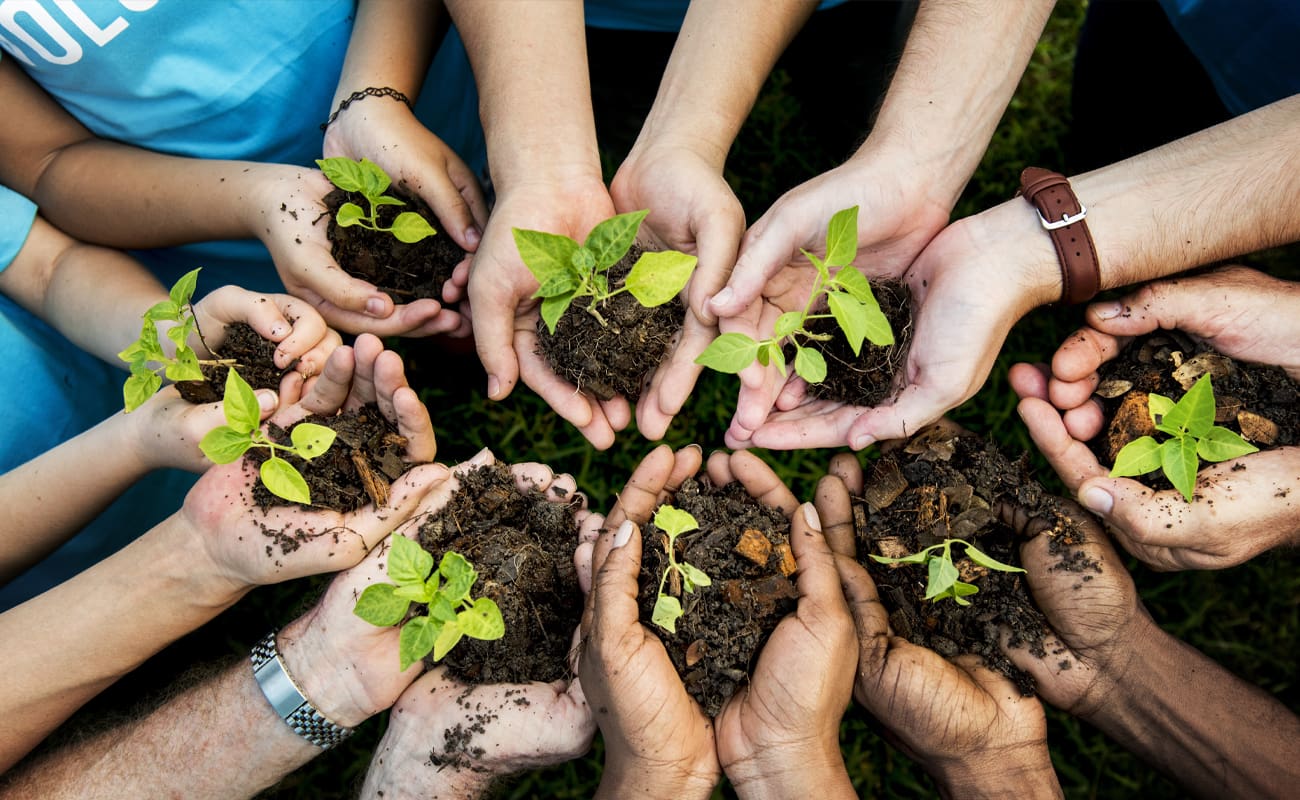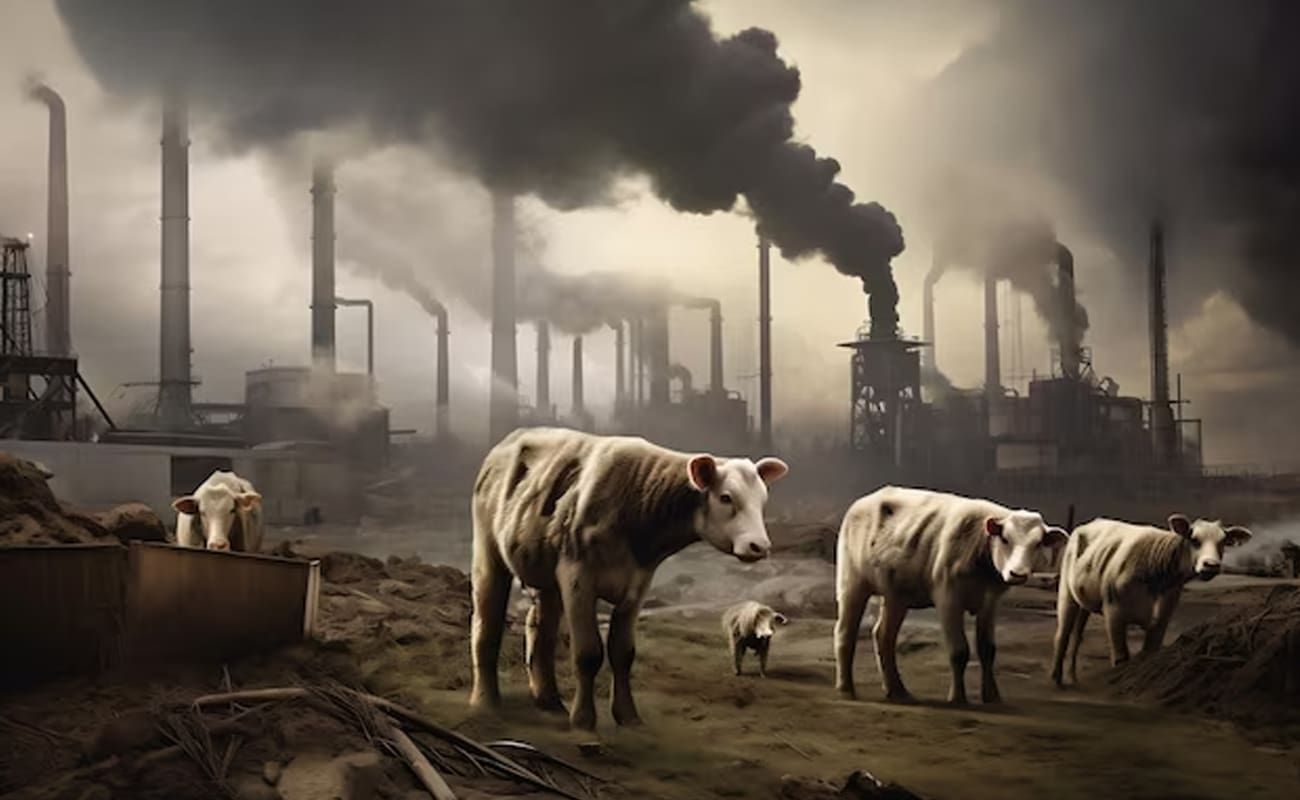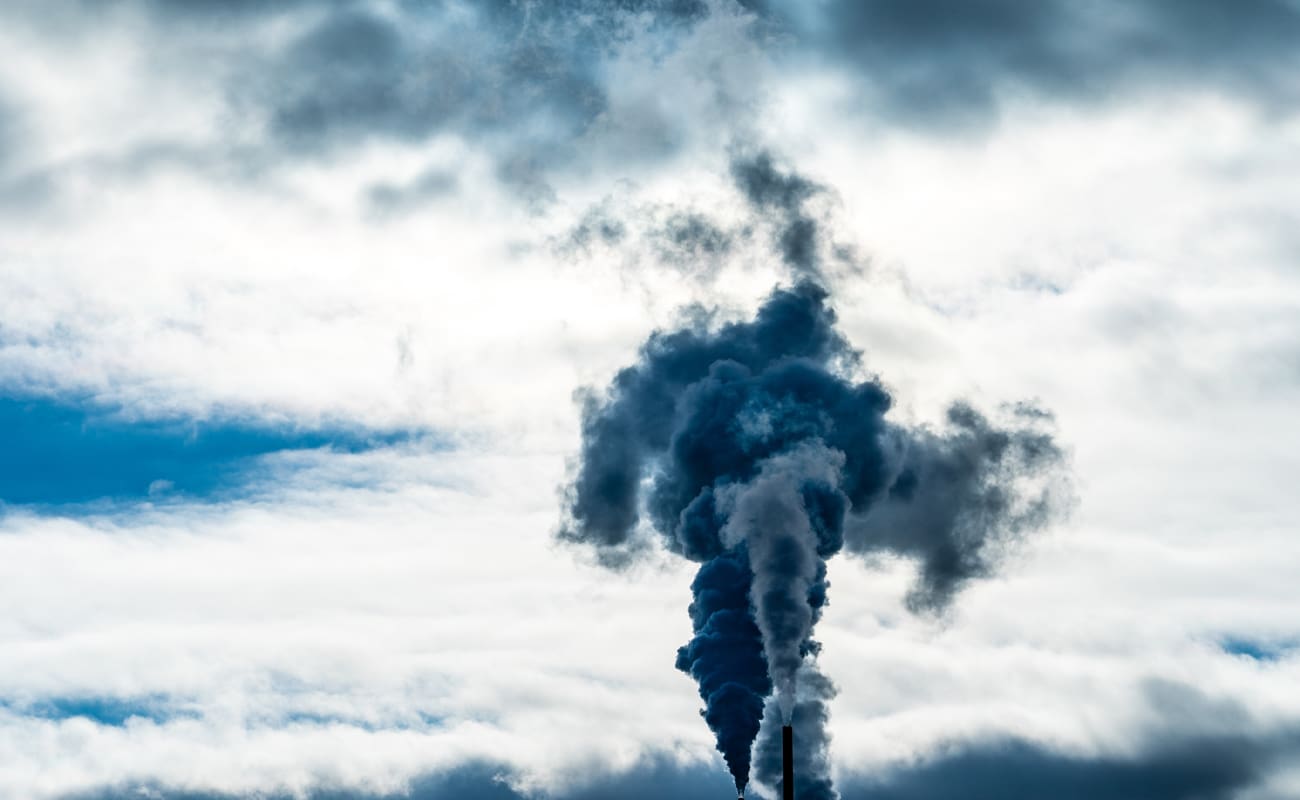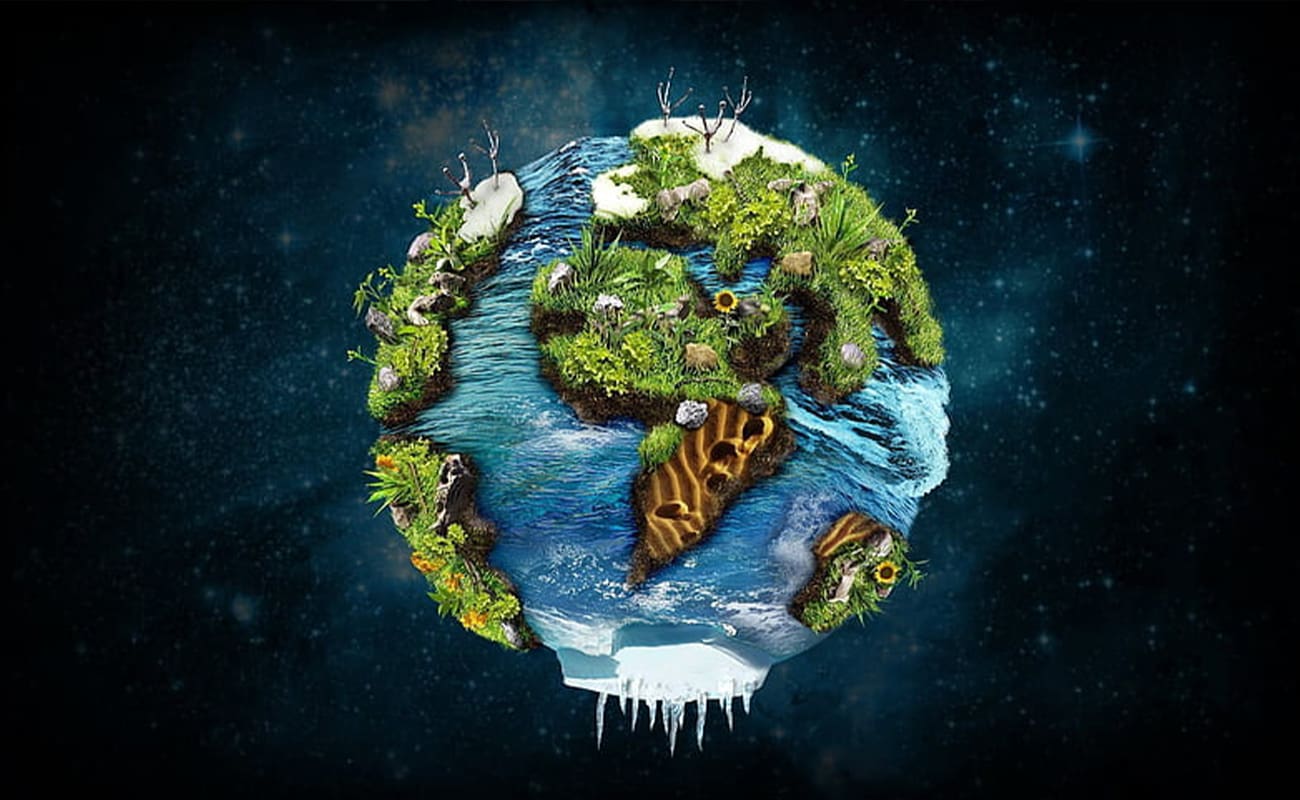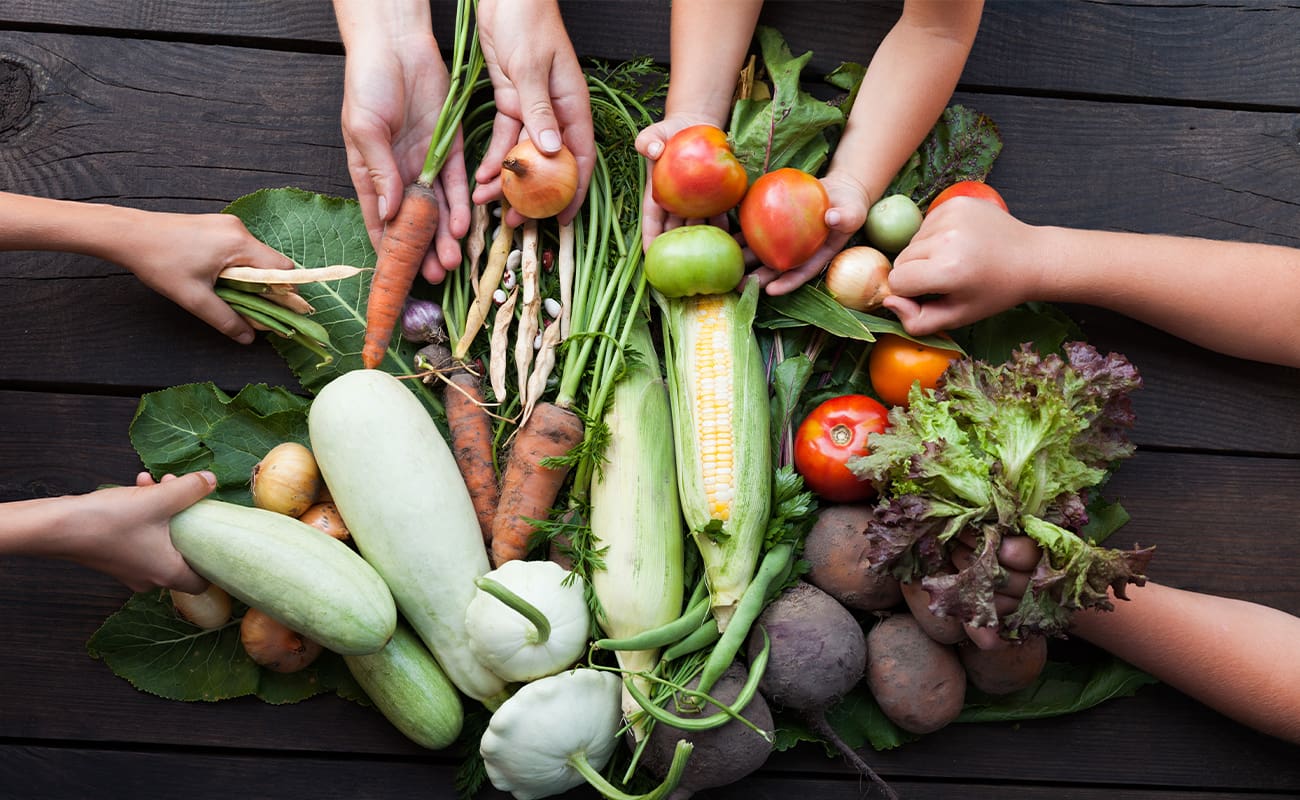In this section, discover how industrial animal agriculture fuels environmental destruction on a massive scale. From polluted waterways to collapsing ecosystems, this category reveals everything you need to know about how factory farming endangers the planet we all share. Explore the far-reaching consequences of resource waste, deforestation, air and water pollution, biodiversity loss, and the impact of animal-based diets on the climate crisis.
Behind every intensive farm lies a chain of environmental harm: forests cleared for animal feed, habitats destroyed for grazing land, and enormous quantities of water and grain diverted to livestock instead of people. The methane emissions from ruminants, the runoff of chemical-laced manure, and the energy demands of refrigeration and transport all converge to make animal farming one of the most ecologically damaging industries on Earth. It exploits land, drains water supplies, and poisons ecosystems—while hiding behind an illusion of efficiency.
By examining these realities, we’re forced to question not just how animals are treated, but how our food choices shape the planet’s future. Environmental damage is not a distant side effect—it’s a direct consequence of a system built on mass exploitation. Understanding the scale of destruction is the first step toward change, and this category sheds light on the urgent need to move toward more sustainable, compassionate alternatives.
Deforestation is a growing global issue with severe consequences for our planet. One of the key drivers of deforestation is animal agriculture, which requires vast amounts of land for livestock production and feed crop cultivation. However, reducing animal product consumption can play a significant role in slowing down deforestation rates. By decreasing the demand for animal products, less land will be needed for livestock, reducing the need to clear forested areas. In this post, we will explore the impact of reducing animal product consumption on deforestation and highlight the important connection between our dietary choices and the protection of forests. Reducing animal product consumption can have a significant impact on slowing down deforestation rates. By decreasing the demand for animal products, less land will be needed for livestock production, thus reducing the need to clear forested areas. This is crucial because deforestation is one of the major drivers of climate …






